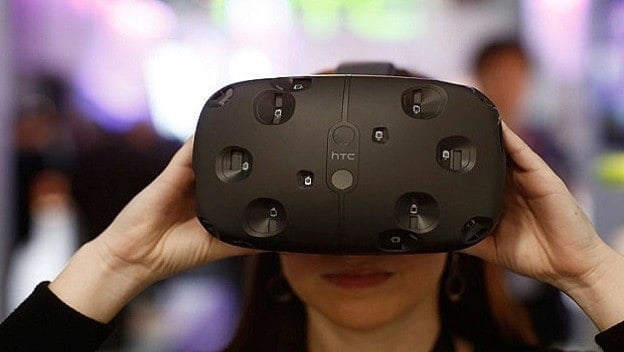If you’re not a hardware nerd, the impending VR invasion may be a little intimidating, especially if you’re excited by the technology and want to get in on the ground floor. I myself am technically inclined, but I tend to catch on to ideas and concepts more easily than I do functions and designs. I can tell you why a program in C++ runs the way that it does until it comes to memory allocation; when hardware enters the picture, I can be a bit daft. I imagine that many of you are like me: you’re not a grandpa when it comes to computers or software, but when it comes to why this processor or motherboard is better than that one – specifically for VR – things start to get a little fuzzy. What to do? I’ll let you in on a little trade secret.
You have to exploit nerd-pride. When I decided I wanted to build my own gaming PC years ago I set out to do all of my own research, but quickly became overwhelmed. I could have thrown the dice and ordered the rig that I set up myself, but I just wasn’t sure about it. Now at the time I frequented a certain technology message board, and knew that if I asked questions about my components that I’d get flamed for being ignorant. “We’re not your personal tech support team” was pretty much the board mantra, so I had to approach things from a different angle; I had to start an argument.
I listed all of the components that I had selected for my PC and stated very confidently why I believed that they were the best choices for my money. They tore my opinions to shreds, and in the process would state why this or that component was the wrong way to go, and that was the trap. No nerd can listen to a know-it-all and not one-up them. Soon my enemies were correcting each other; arguing with each other; stating why what they would buy for the money was the best choice. Several pages later, I had gotten more help from my haters than I would have received from a Best Buy full of employee-of-the-month aspirants.
By feats of social manipulation that would make Machiavelli proud, I have produced another nerd-debate about the Oculus Rift, HTC Vive, and PlayStation VR. I needed to know how much this all would cost me, and why I might consider one over another; and I wanted a tl;dr version. Here is what I managed to distill:
TL;DR – Oculus Rift
The Oculus is going to run you about $600. That’s not too bad, but you’re going to need a hell of a PC to power this thing; the minimum required GPU is the NVIDIA GTX 970, which is a $300 card. If you have a gaming PC, you’re probably good to go as far as ram and your CPU are concerned. Oculus has that Facebook money, and you know Zuckerberg is going to incentivize as many top-notch developers as he can to create incredible games, tools, and entertainment for his HMD. One drawback: you’ll need 3 USB 3.0 ports. One for the HMD, another for the trackers, and another for the Xbox One controller. If you decide to add in the Oculus Touch controllers in the future, you’ll need 4 USB ports total. Fortunately, USB hubs are cheap.

TL;DR – HTC Vive
This seems to be the elite gamers’ choice, and it’s also the most expensive choice at $800. That price is pretty prohibitive, especially considering the minimum requirements mirror those of the Rift, with some minor differences. A Vive-ready PC only needs 4 gigs of ram, and one USB 2.0 port. The Vive itself will plug into your USB port, and the trackers and controllers interface with each other wirelessly, which sounds more accommodating. HTC’s unit will also ship with motion-tracking controllers, which could make for more immersive gameplay. Expect Valve to unveil some irresistible new offerings, as well as some re-imagined classics for VR (would Portal VR be too intense?).
TL;DR – PlayStation VR
We don’t know how much the PS VR is going to cost (yet), but even if it’s $600, it will be the cheapest option by far. With over 35 million PS4 owners, you can bet that developers are going to be attracted to a potentially huge install-base right off the bat. Although the PS VR is cranking out visuals at lower resolutions than the Rift and the Vive, reprojection technology and extremely low latency are producing results that many developers are preferring over the competition. Sony already has a huge lineup of games in the works, and since all PS4s are identical, developers will be able to optimize and fine-tune their games to run perfectly on the hardware.
This year will change everything. Personally, I have a feeling that Sony is going to come out on top this year with the PlayStation VR, but I also think that VR will remain a niche novelty in 2016. Expect the first outstanding, must-buy VR hardware sometime in 2018. For you cutting-edge early adopters, which HMD are you attracted to most, and why?
